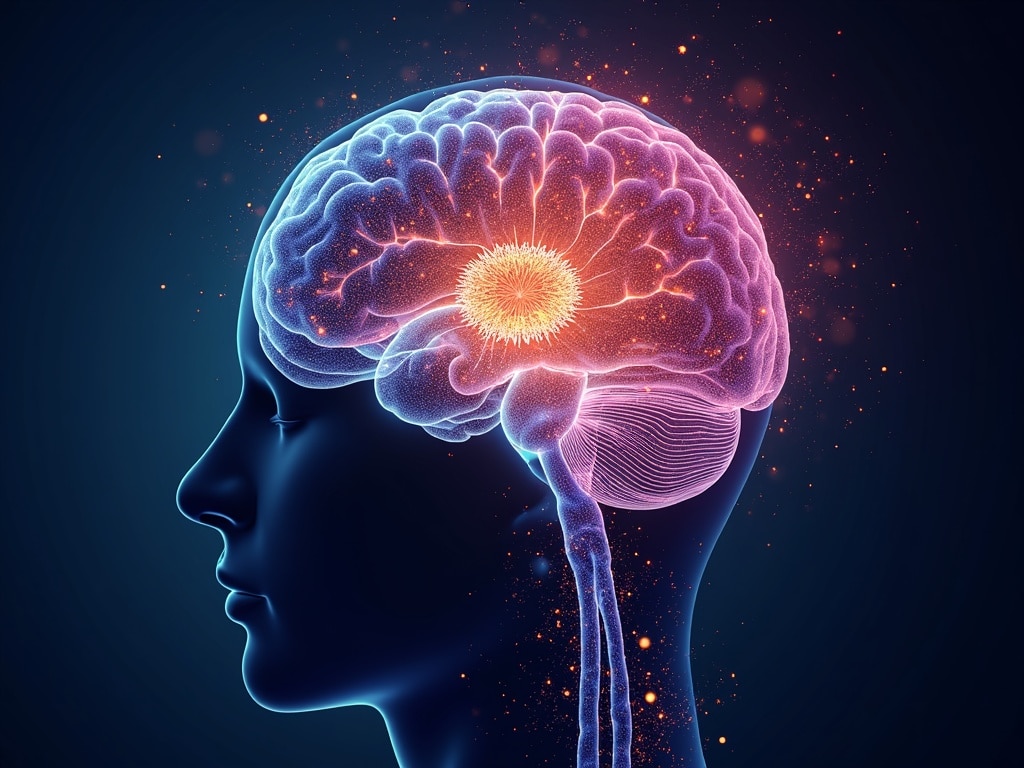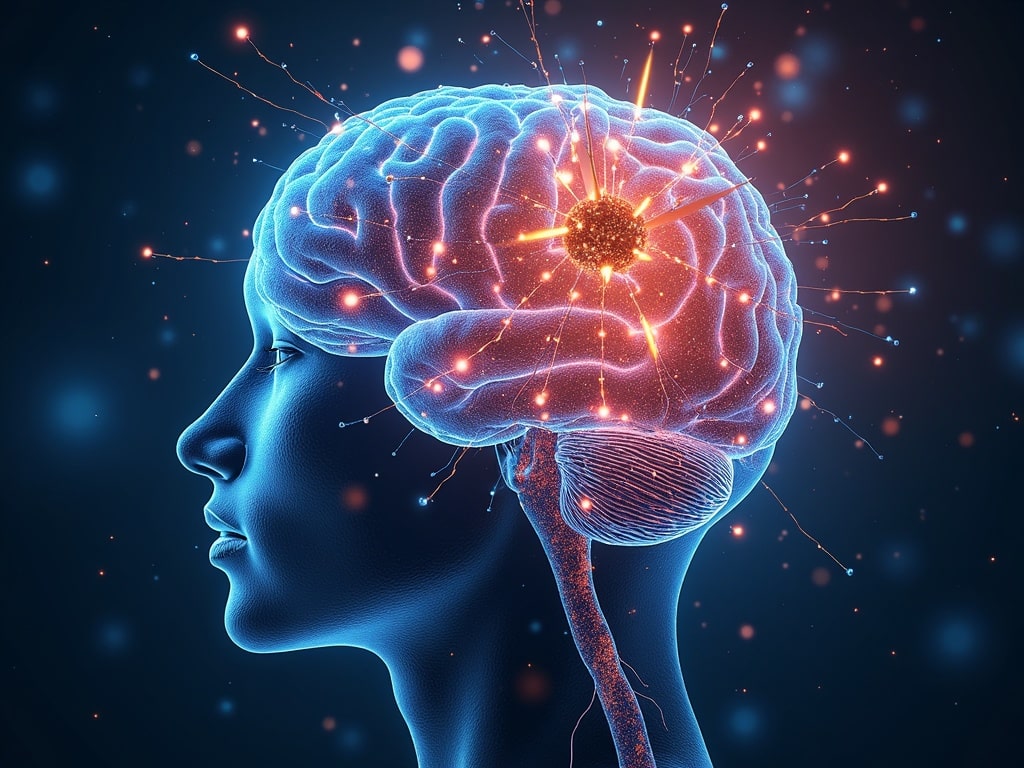How to Improve Neuroplasticity: Rewire Your Brain for a Better Life
Imagine your brain as a lush, overgrown garden. Pathways are the well-worn trails created by repeated thoughts and actions. If you always walk the same route, the other areas become neglected, overgrown with weeds. Neuroplasticity is your brain’s ability to prune those overgrown areas, cultivate new paths, and reshape itself. It’s how you learn, adapt, and recover from injury. The good news? You can actively influence this process. This article dives deep into how to improve neuroplasticity and unlock your brain's full potential for a more vibrant and fulfilling life.
Understanding Neuroplasticity: The Brain's Remarkable Adaptability
Neuroplasticity, also known as brain plasticity, is the brain's capacity to reorganize itself by forming new neural connections throughout life. For years, it was believed that the brain was fixed after childhood. However, groundbreaking research has revealed that the brain is incredibly dynamic and capable of change at any age.
Think of it like this: neurons, the brain's building blocks, are constantly communicating with each other. When you learn something new, practice a skill, or experience something novel, these connections strengthen. In contrast, connections that are not used weaken and can eventually be pruned away. This constant remodeling allows the brain to adapt to new experiences, learn new information, and recover from damage.
The Two Main Types of Neuroplasticity
There are two primary types of neuroplasticity:
- Structural Plasticity: This involves changes in the physical structure of the brain, such as the growth of new neurons (neurogenesis) or the strengthening or weakening of synapses (the connections between neurons).
- Functional Plasticity: This refers to changes in how the brain functions, such as the reorganization of brain regions to compensate for injury or the adaptation of neural circuits to perform new tasks.
Why is Improving Neuroplasticity Important?
Boosting your brain's plasticity offers several significant benefits:
- Enhanced Learning: A more plastic brain learns faster and retains information more effectively.
- Improved Memory: Neuroplasticity is crucial for forming and retrieving memories.
- Faster Recovery from Brain Injury: By rewiring itself, the brain can compensate for damaged areas after a stroke or traumatic brain injury.
- Increased Cognitive Function: A plastic brain is more adaptable and resilient, leading to improved problem-solving, critical thinking, and creativity.
- Mental Health Benefits: Neuroplasticity plays a role in regulating mood and emotions. Boosting it can help alleviate symptoms of depression, anxiety, and other mental health conditions.
Proven Strategies: How to Improve Neuroplasticity
Ready to cultivate your brain's garden? Here's a comprehensive guide to evidence-based strategies for improving neuroplasticity:
1. Embrace Novelty and New Experiences
Stepping outside your comfort zone is one of the most potent ways to stimulate neuroplasticity. When you encounter something new, your brain is forced to create new neural pathways to process the information.
- Travel: Explore new cultures, landscapes, and languages.
- Learn a New Skill: Take up a new instrument, learn a new language, try a new sport, or delve into a new hobby.
- Change Your Routine: Take a different route to work, try a new restaurant, or rearrange your furniture.
- Engage Your Senses: Try new foods, listen to new music, or explore new scents.
2. Challenge Your Brain with Cognitive Training
Just like physical exercise strengthens your muscles, cognitive training strengthens your brain. Engaging in mentally stimulating activities can help create new neural connections and improve cognitive function.
- Puzzles and Brain Games: Crossword puzzles, Sudoku, chess, and other brain games challenge your cognitive skills and promote neuroplasticity.
- Learning a New Language: Language learning is a complex cognitive task that engages multiple brain regions and enhances neuroplasticity.
- Reading: Reading fiction and non-fiction exposes you to new ideas, perspectives, and vocabulary, stimulating your brain and improving cognitive function.
- Playing Musical Instruments: Learning to play a musical instrument requires coordination, memory, and attention, all of which contribute to neuroplasticity.
3. Prioritize Sleep and Manage Stress
Sleep and stress management are crucial for brain health and neuroplasticity.
- Get Enough Sleep: Aim for 7-8 hours of quality sleep per night. Sleep is essential for consolidating memories and clearing out toxins from the brain.
- Manage Stress: Chronic stress can impair neuroplasticity and cognitive function. Practice stress-reducing techniques such as meditation, yoga, deep breathing, or spending time in nature. These practices help regulate the nervous system and promote a state of calm, allowing the brain to function optimally.
4. Nourish Your Brain with a Healthy Diet
What you eat directly impacts your brain health and neuroplasticity. Certain nutrients and foods can promote brain growth, protect against damage, and enhance cognitive function.
- Omega-3 Fatty Acids: Found in fatty fish, flaxseeds, and walnuts, omega-3s are essential for brain health and neuroplasticity.
- Antioxidants: Found in fruits, vegetables, and berries, antioxidants protect the brain from damage caused by free radicals.
- B Vitamins: Found in whole grains, leafy greens, and lean meats, B vitamins are essential for nerve function and energy production in the brain.
- Avoid Processed Foods, Sugary Drinks, and Excessive Alcohol: These can harm brain health and impair neuroplasticity.
5. Exercise Regularly
Physical exercise is not just beneficial for your body; it's also great for your brain. Exercise increases blood flow to the brain, stimulates the release of growth factors, and promotes neurogenesis.
- Aerobic Exercise: Activities like running, swimming, and cycling improve cardiovascular health and increase blood flow to the brain.
- Strength Training: Strength training can also benefit brain health by increasing muscle mass and improving metabolism.
- Yoga and Tai Chi: These mind-body practices combine physical movement with mindfulness, promoting both physical and mental well-being.

6. Practice Mindfulness and Meditation
Mindfulness and meditation are powerful tools for improving neuroplasticity and cognitive function. These practices involve focusing your attention on the present moment without judgment, which can help rewire your brain and reduce stress.
- Mindfulness Meditation: This involves paying attention to your breath, body sensations, and thoughts without getting carried away by them.
- Loving-Kindness Meditation: This involves cultivating feelings of compassion and kindness towards yourself and others.
- Guided Meditation: This involves listening to a guided meditation to help you relax and focus your attention.
7. Socialize and Connect with Others
Social interaction is crucial for brain health and neuroplasticity. Connecting with others stimulates your brain, provides emotional support, and combats loneliness, which can negatively impact cognitive function.
- Spend Time with Loved Ones: Nurture your relationships with family and friends.
- Join a Club or Group: Engage in activities that you enjoy with others who share your interests.
- Volunteer: Give back to your community and connect with others while making a difference.
8. Consider Neurofeedback
Neurofeedback, also known as EEG biofeedback, is a type of biofeedback that trains individuals to self-regulate their brain activity. During a neurofeedback session, sensors are placed on the scalp to monitor brainwave activity. This information is then fed back to the individual in real-time, allowing them to learn how to consciously control their brainwaves. Neurofeedback has shown promise in improving attention, reducing anxiety, and enhancing cognitive function.
9. Explore Supplements (With Caution and Research)
While a healthy diet should be the foundation of your brain-boosting efforts, certain supplements might offer additional support for neuroplasticity. Always consult with a healthcare professional before starting any new supplement regimen. Some supplements that have shown potential benefits for brain health include:
- Lion's Mane Mushroom: This mushroom has been shown to stimulate nerve growth factor (NGF), which is important for neuron growth and survival.
- Bacopa Monnieri: This Ayurvedic herb has been shown to improve memory and cognitive function.
- Creatine: Commonly used for muscle growth, creatine has also been shown to improve cognitive function, particularly in tasks requiring short-term memory and reasoning.
Putting It All Together: Creating a Brain-Boosting Lifestyle
Improving neuroplasticity is not about doing one thing perfectly; it's about creating a lifestyle that supports brain health and adaptability. Here's a roadmap:
- Start Small: Don't try to overhaul your entire life overnight. Choose one or two strategies to focus on and gradually incorporate others.
- Be Consistent: Consistency is key to seeing results. Make these strategies part of your daily or weekly routine.
- Listen to Your Body: Pay attention to how different strategies affect you and adjust your approach accordingly.
- Be Patient: Neuroplasticity takes time. It may take weeks or months to notice significant changes.
- Enjoy the Journey: Focus on the process of learning and growing, rather than solely on the end result.
The Future of Neuroplasticity Research
Neuroplasticity research is a rapidly evolving field, with new discoveries being made all the time. Scientists are exploring the potential of neuroplasticity to treat a wide range of neurological and psychiatric conditions, including Alzheimer's disease, Parkinson's disease, stroke, traumatic brain injury, depression, and anxiety. Future research may lead to even more effective strategies for enhancing neuroplasticity and improving brain health.
Conclusion: Unlock Your Brain's Limitless Potential
Your brain is not fixed; it's a dynamic, adaptable organ capable of remarkable change. By embracing novelty, challenging your brain, prioritizing sleep, nourishing your body, and practicing mindfulness, you can tap into your brain's innate ability to rewire itself and unlock your full potential. The journey to improve neuroplasticity is a lifelong adventure, but the rewards – a sharper mind, a more resilient spirit, and a more fulfilling life – are well worth the effort. Start today, and begin cultivating the garden of your mind.

